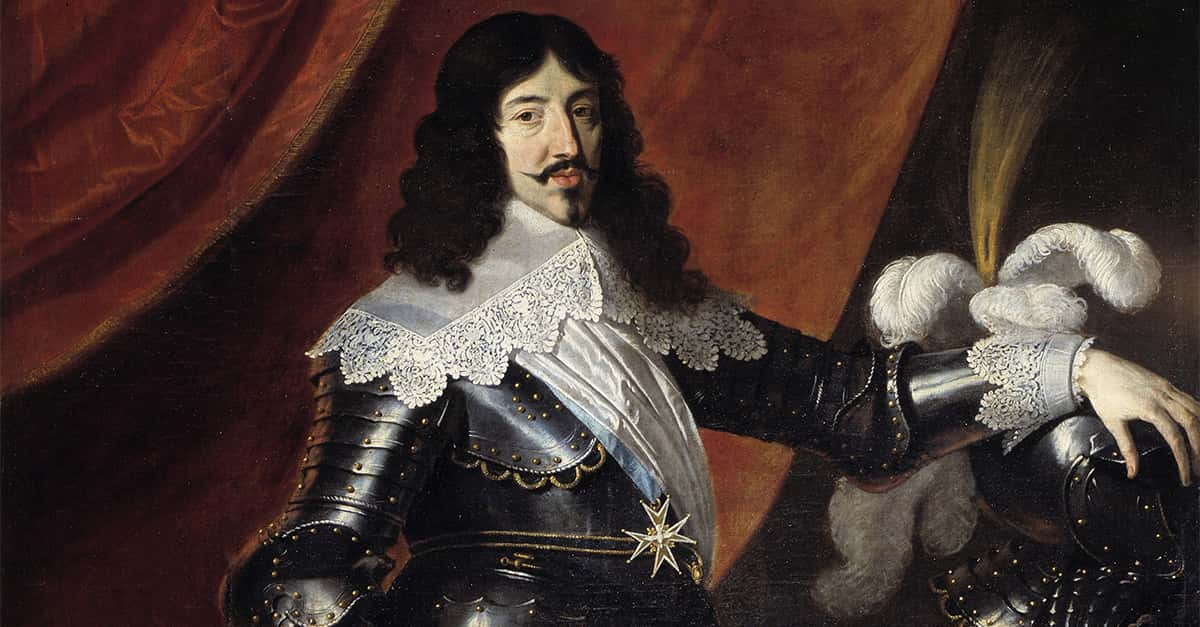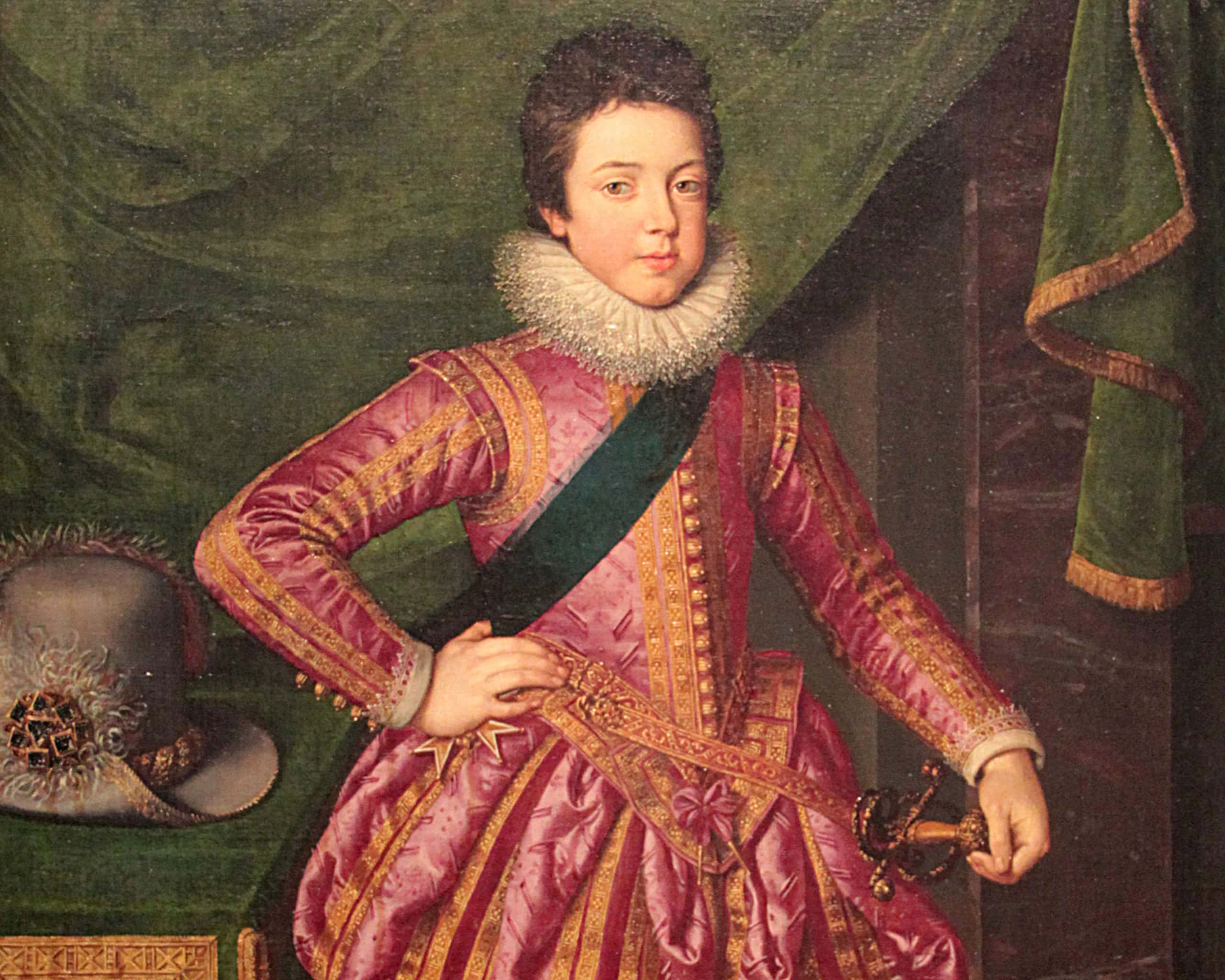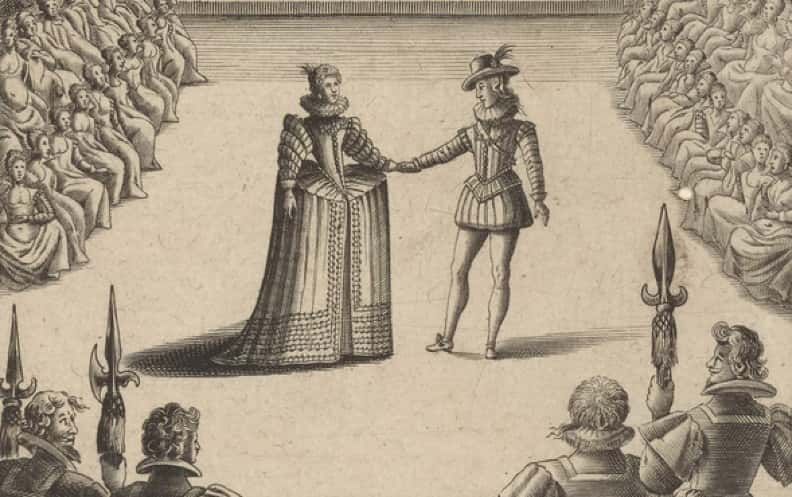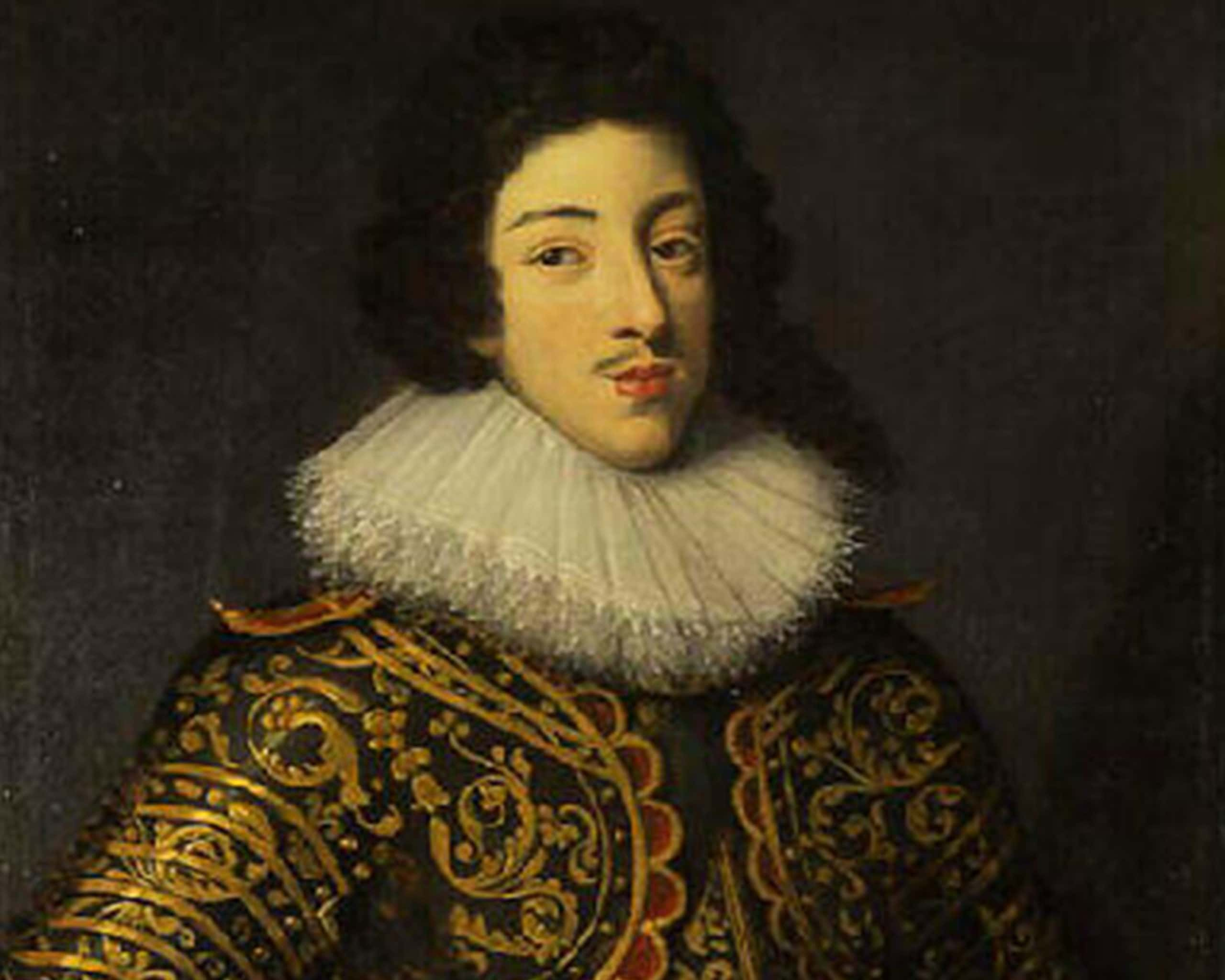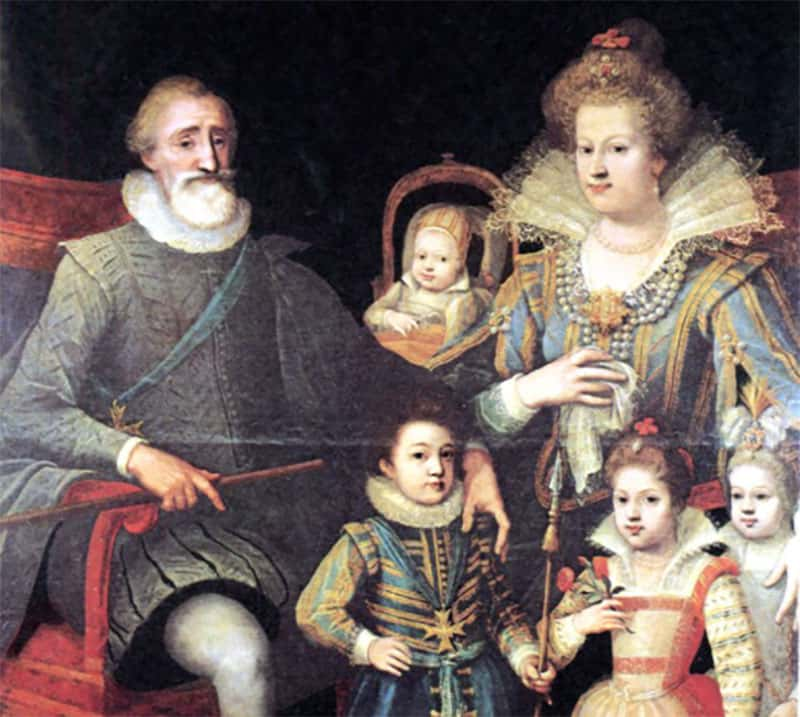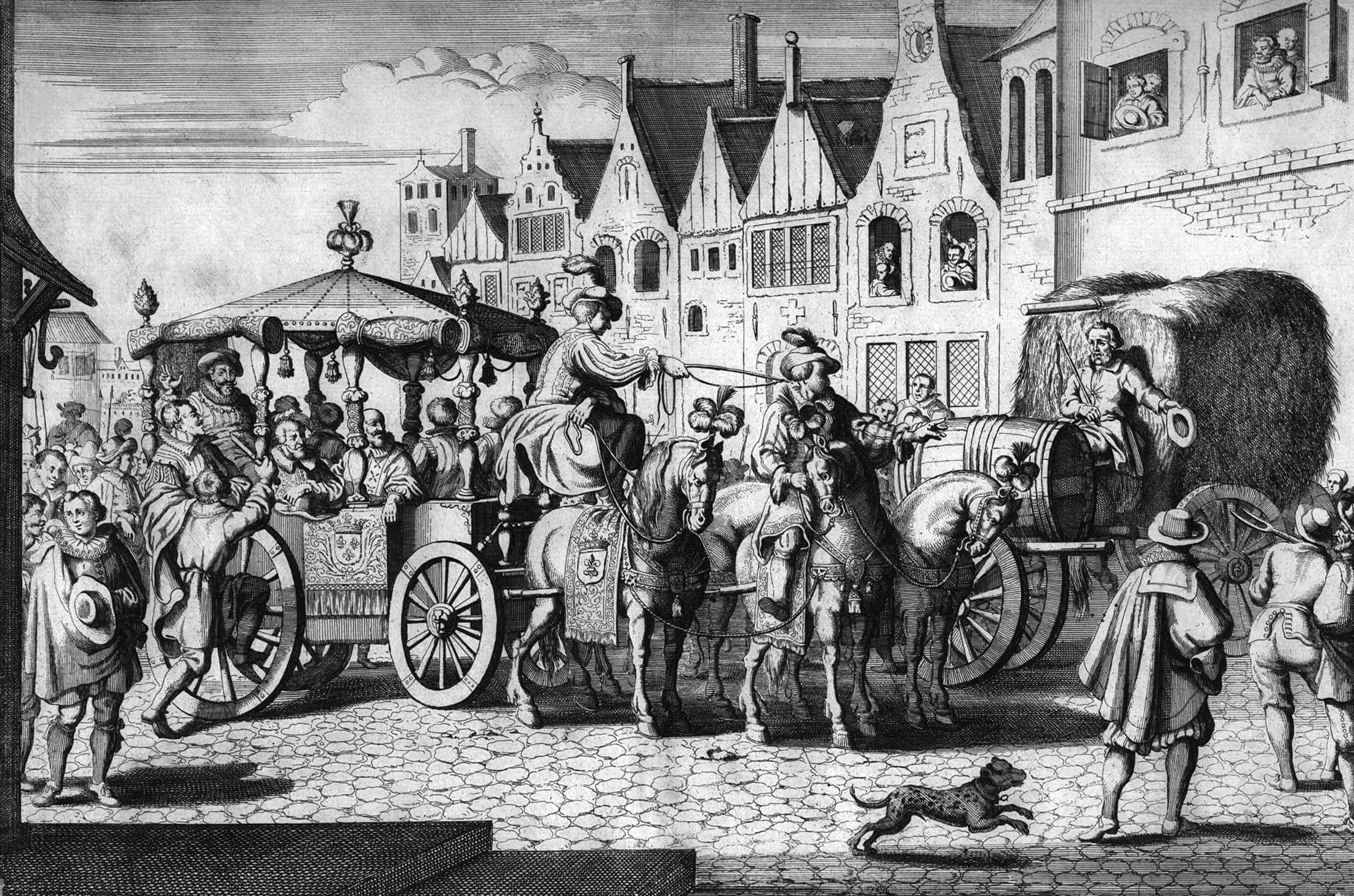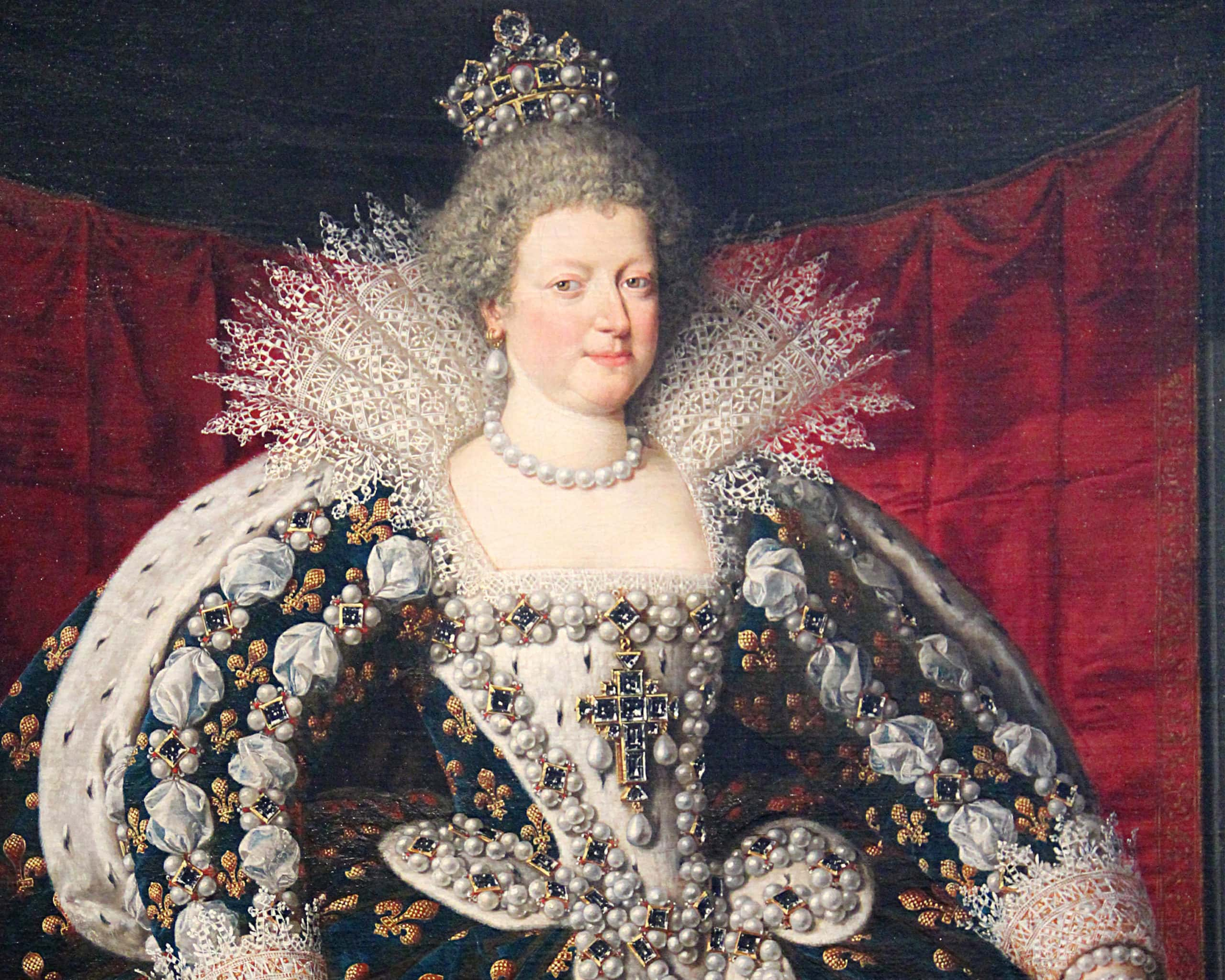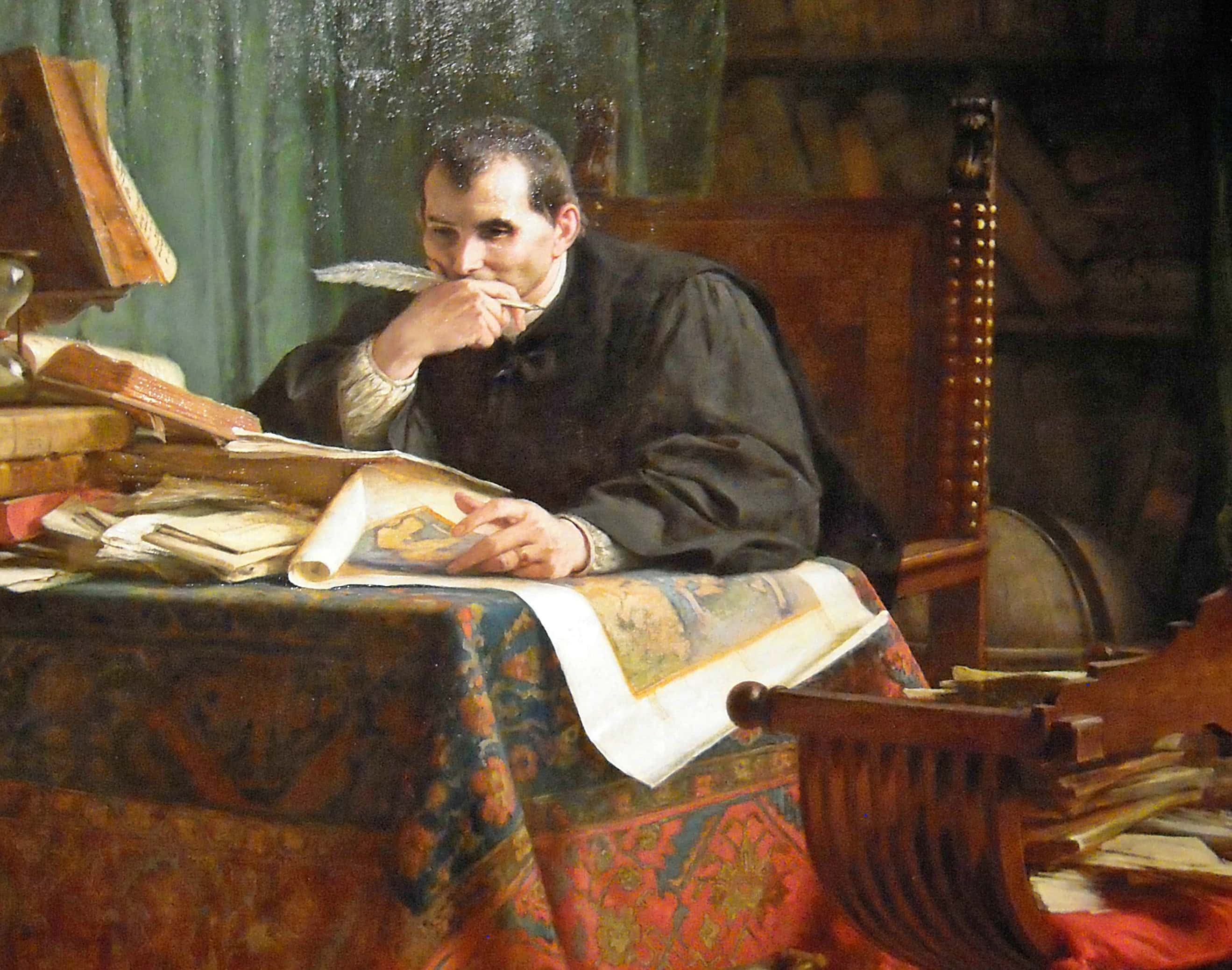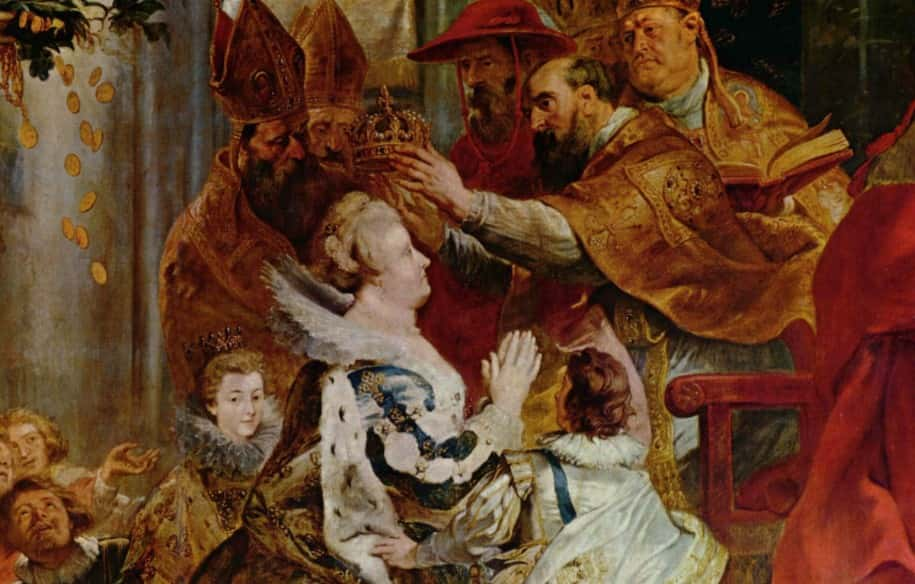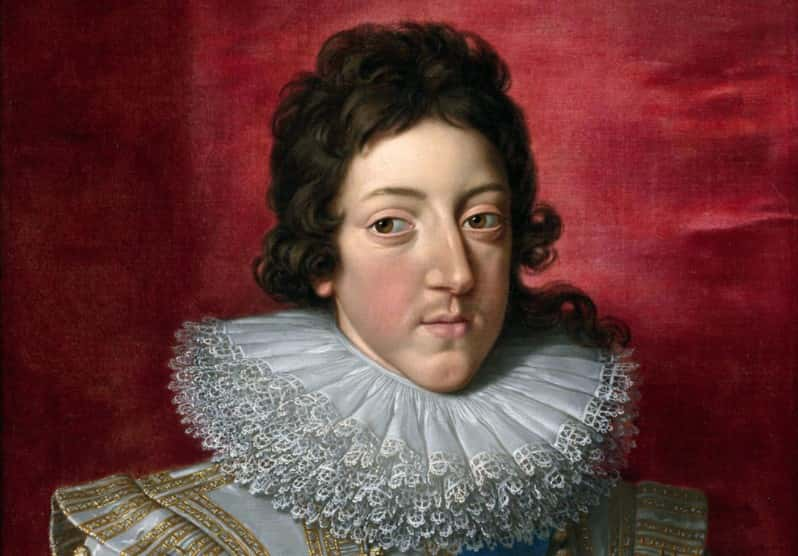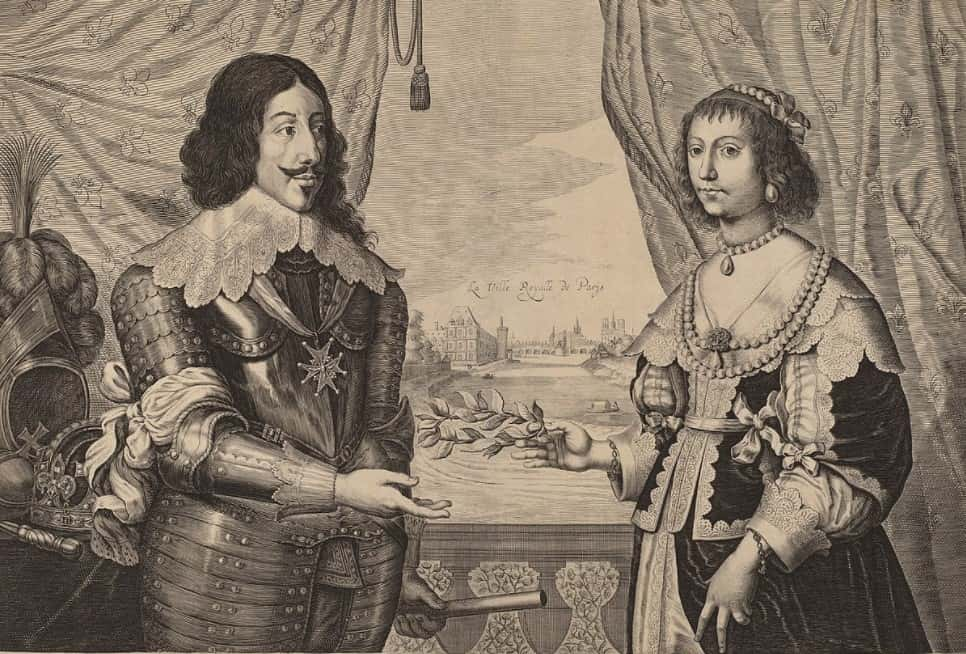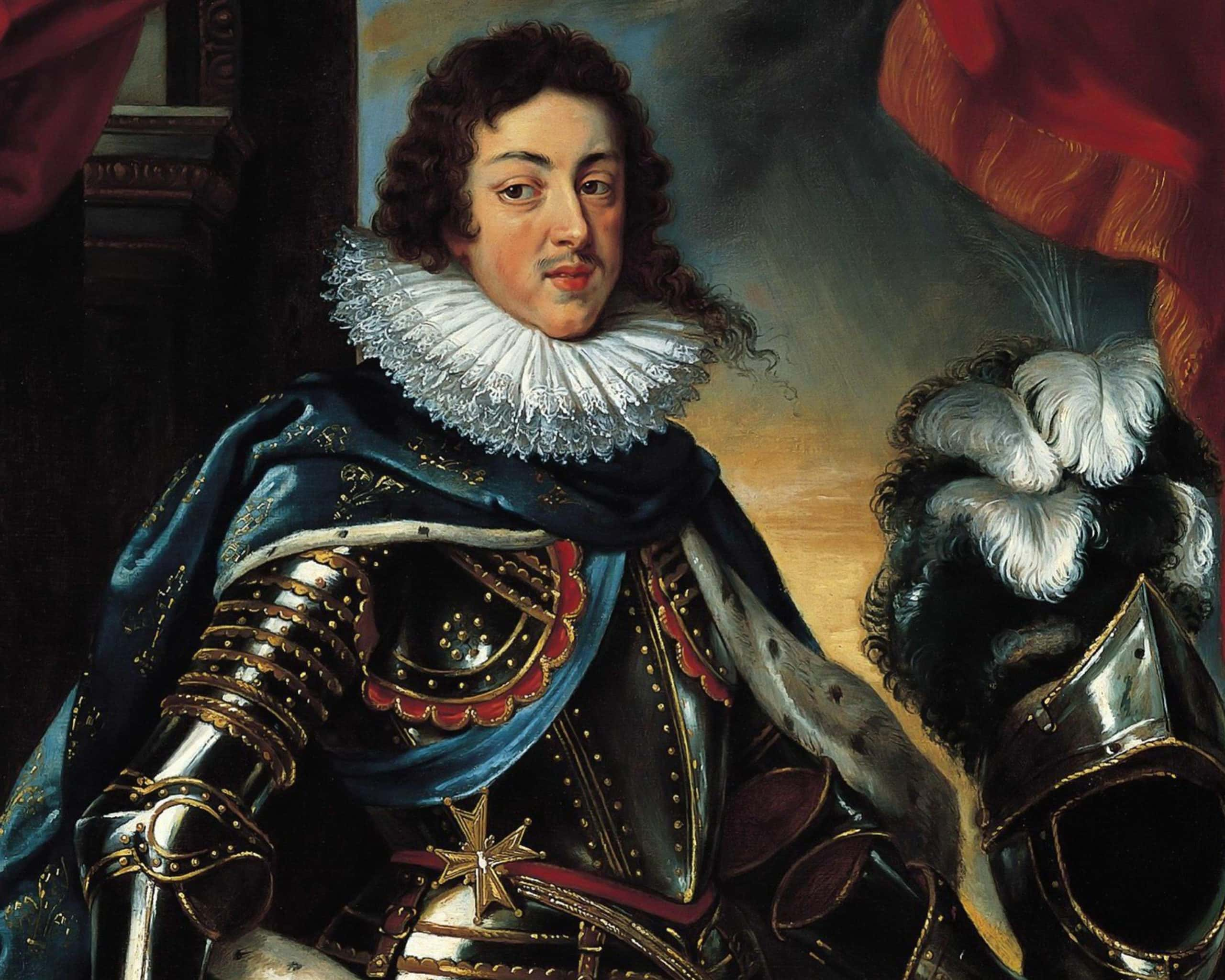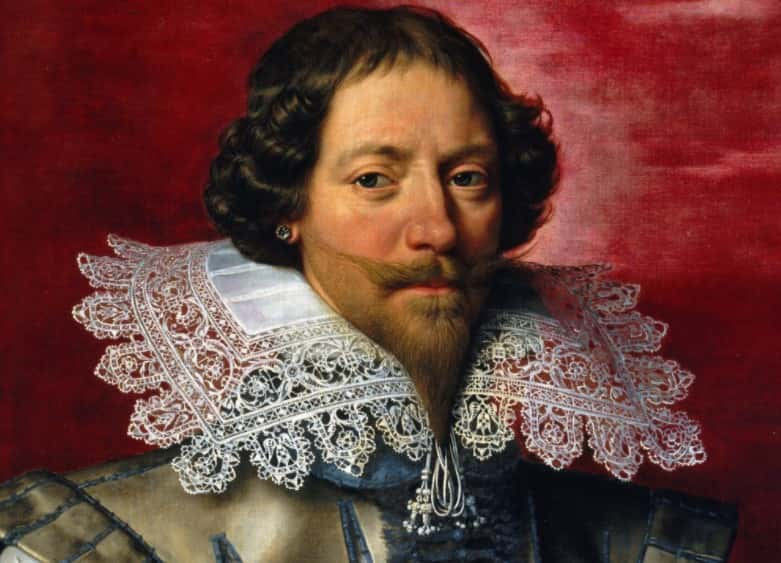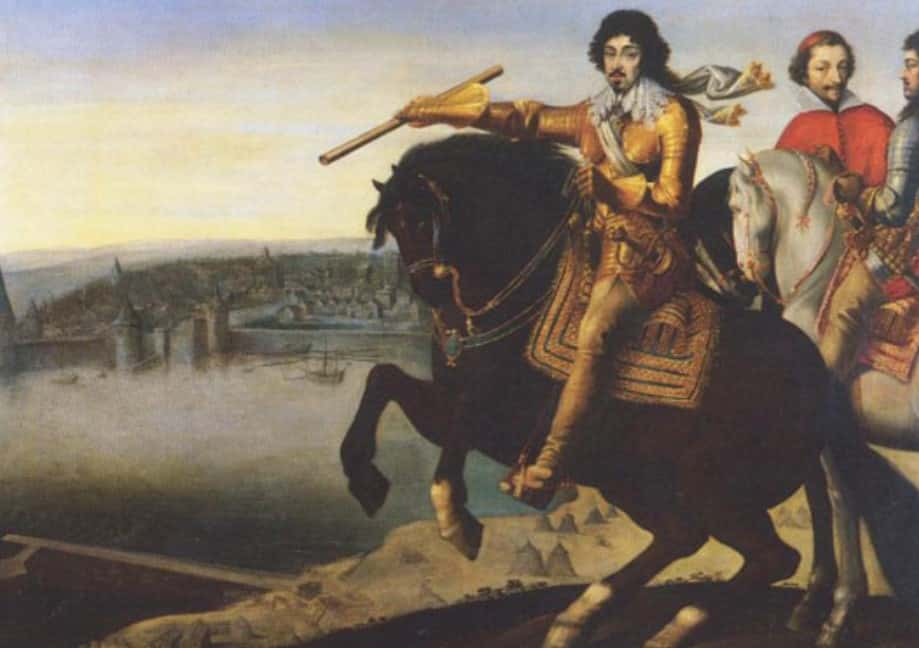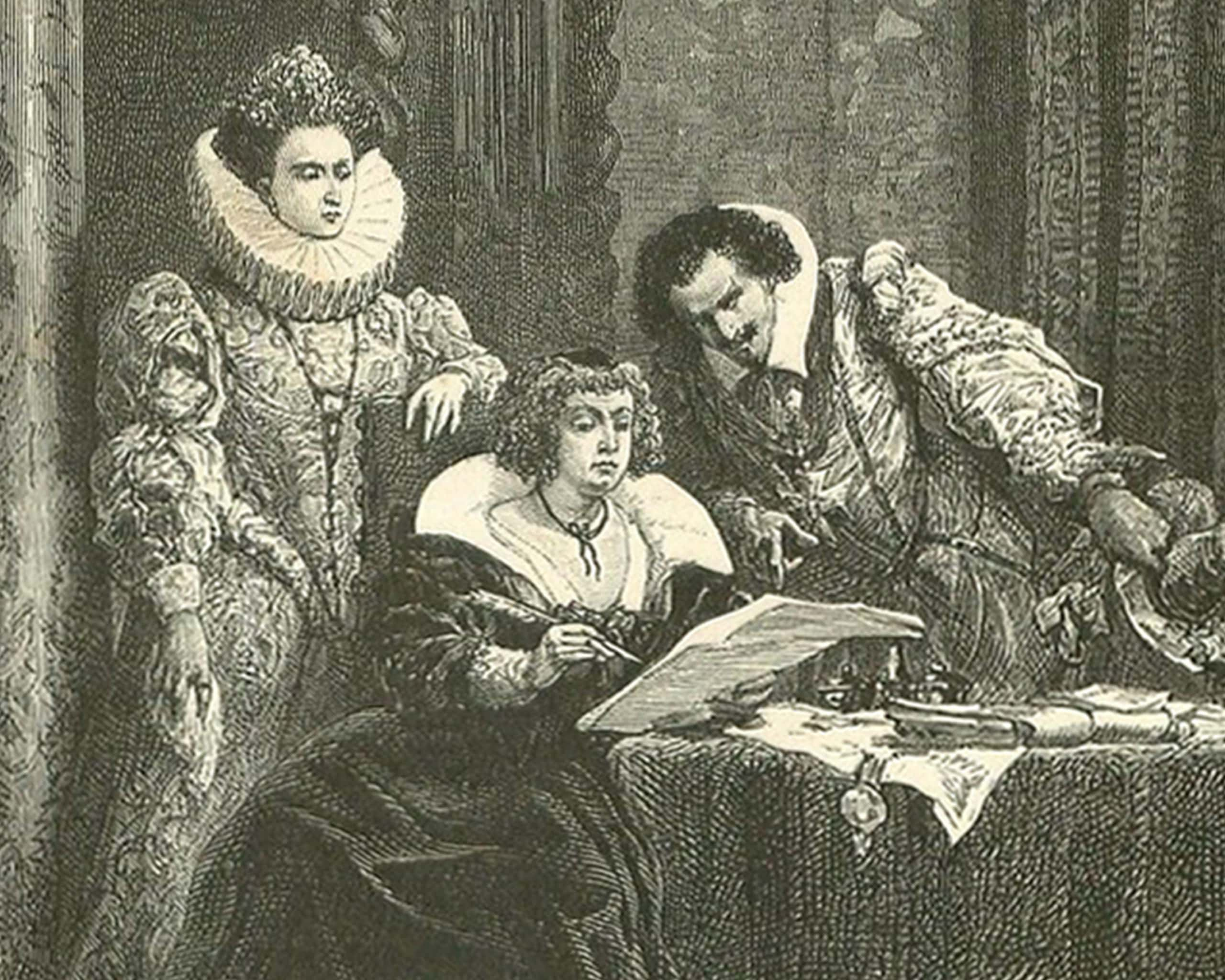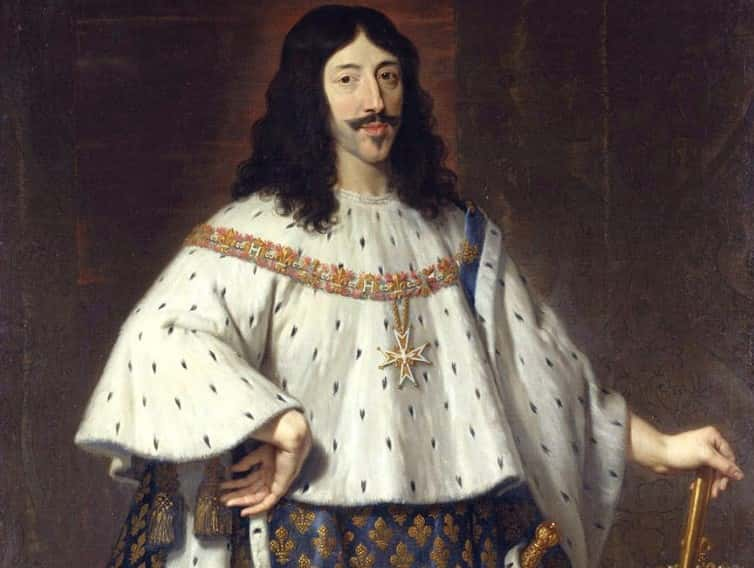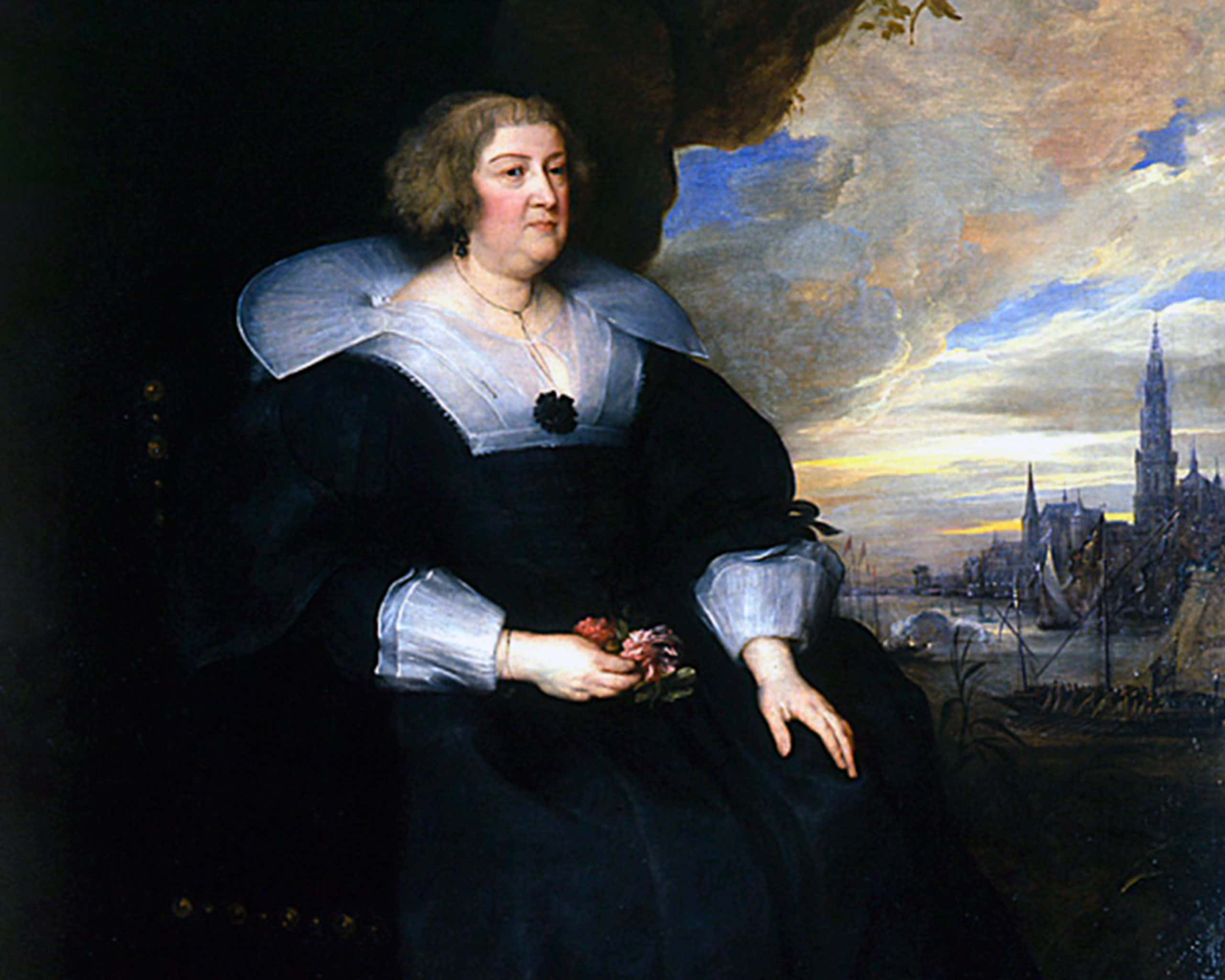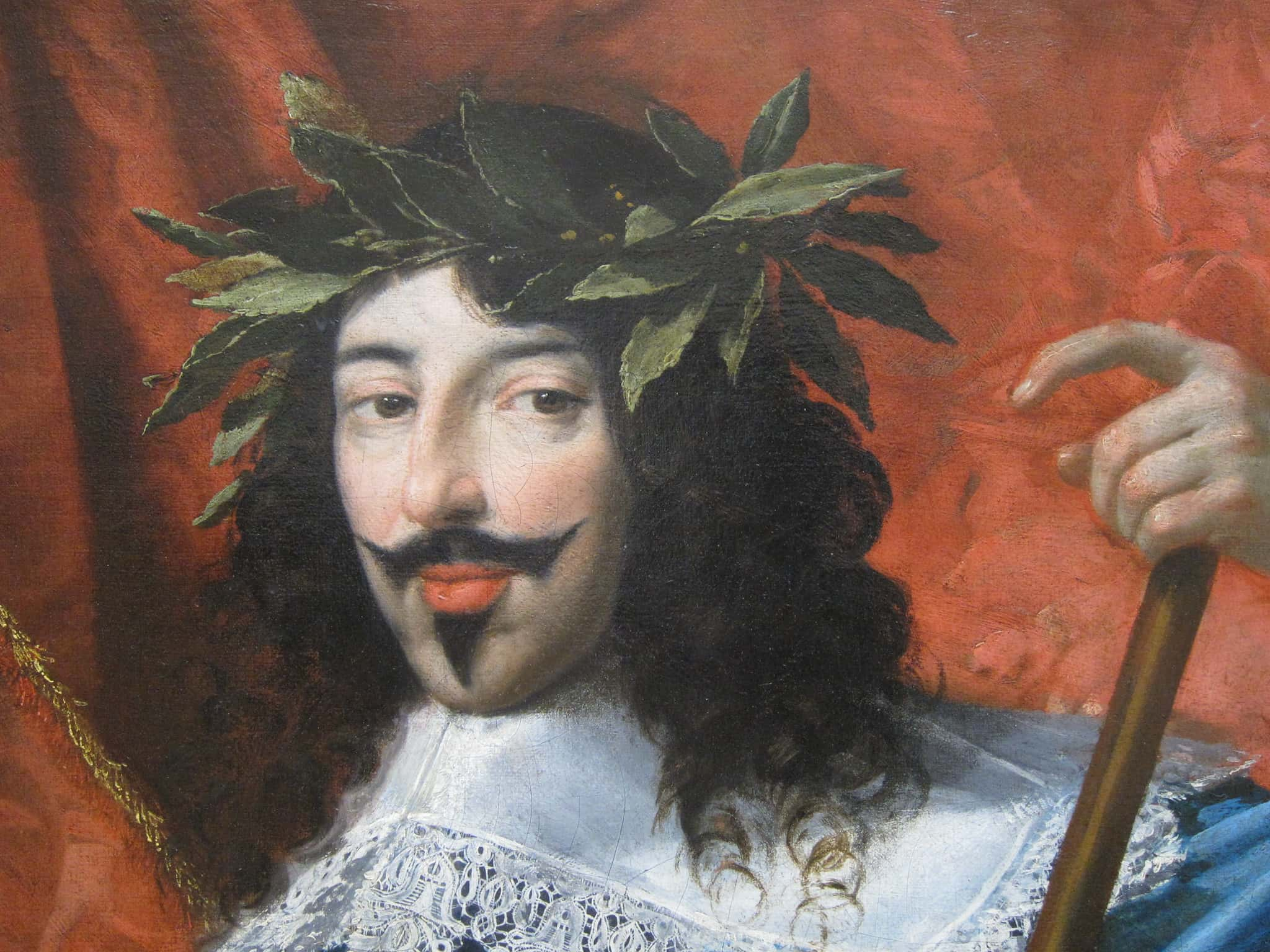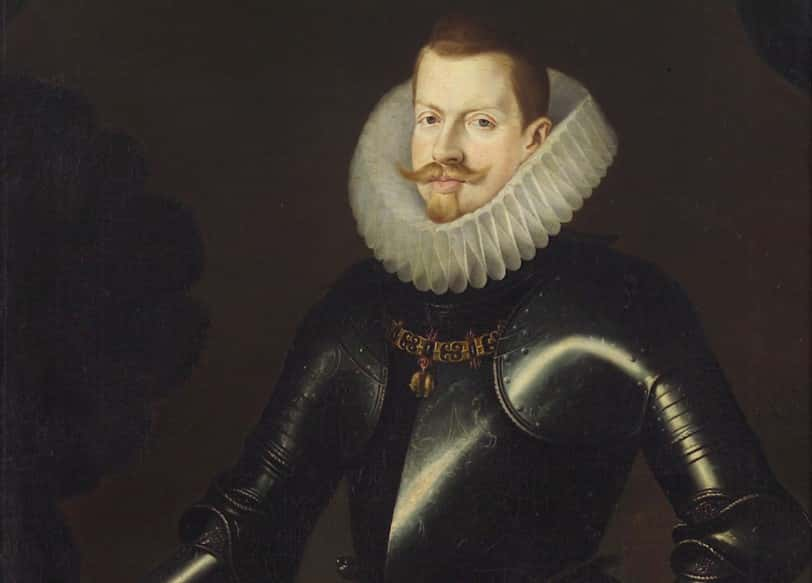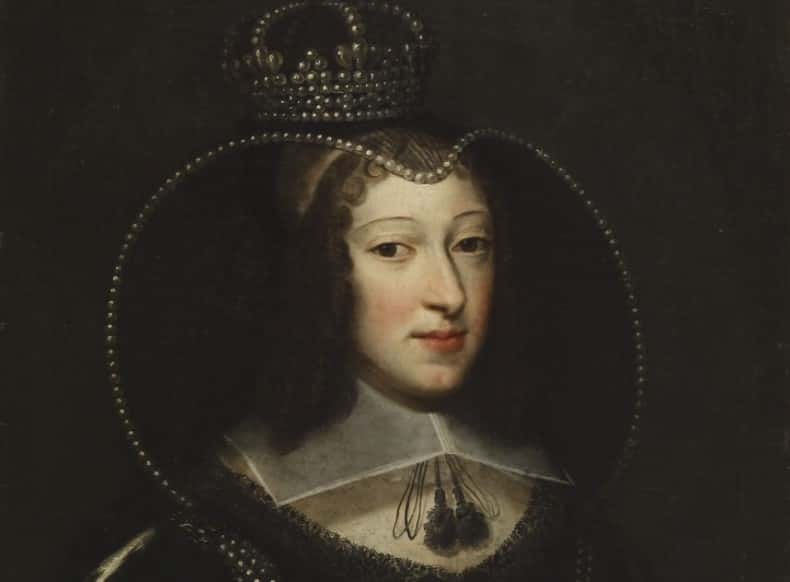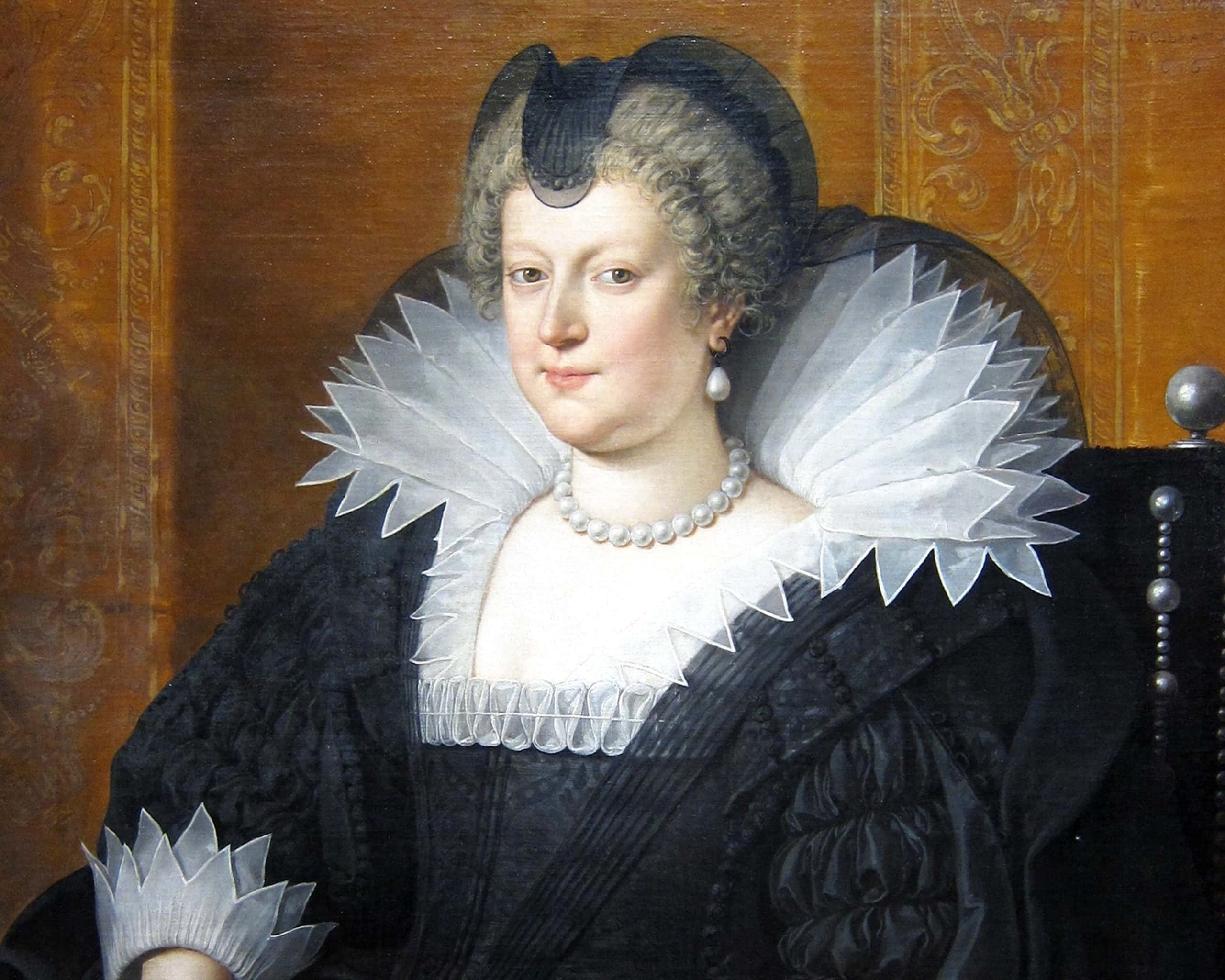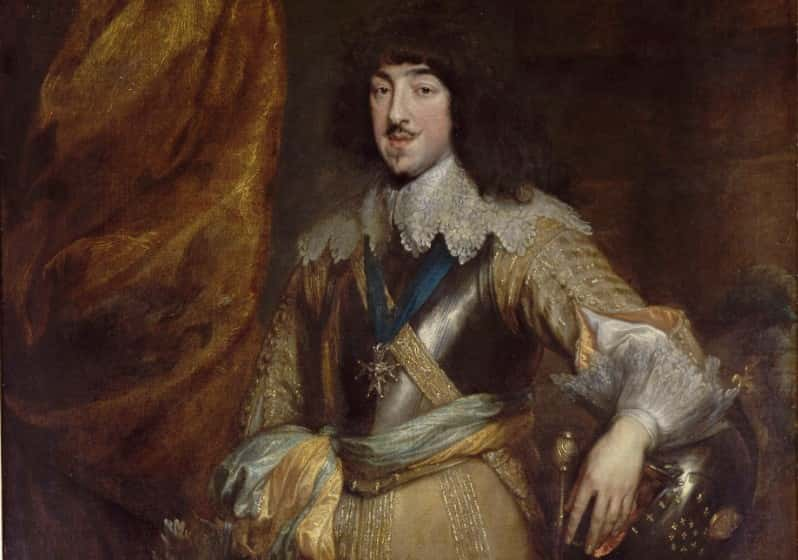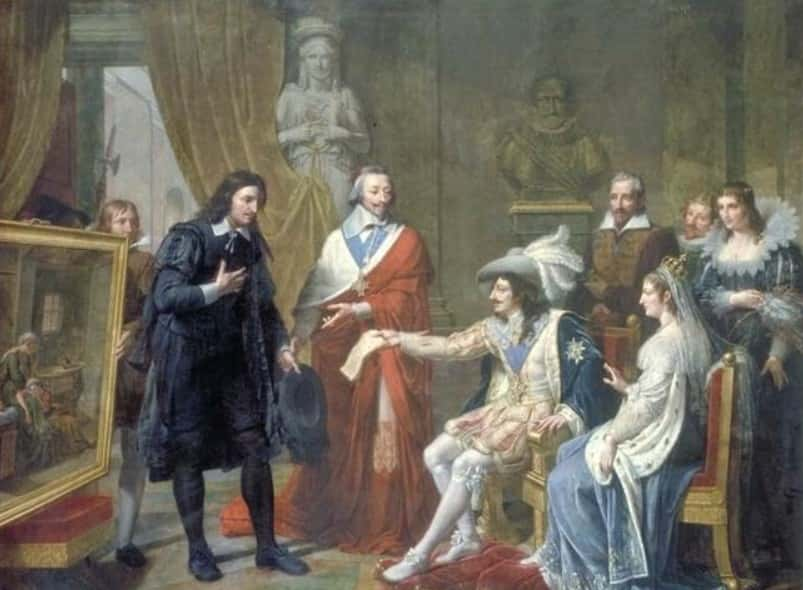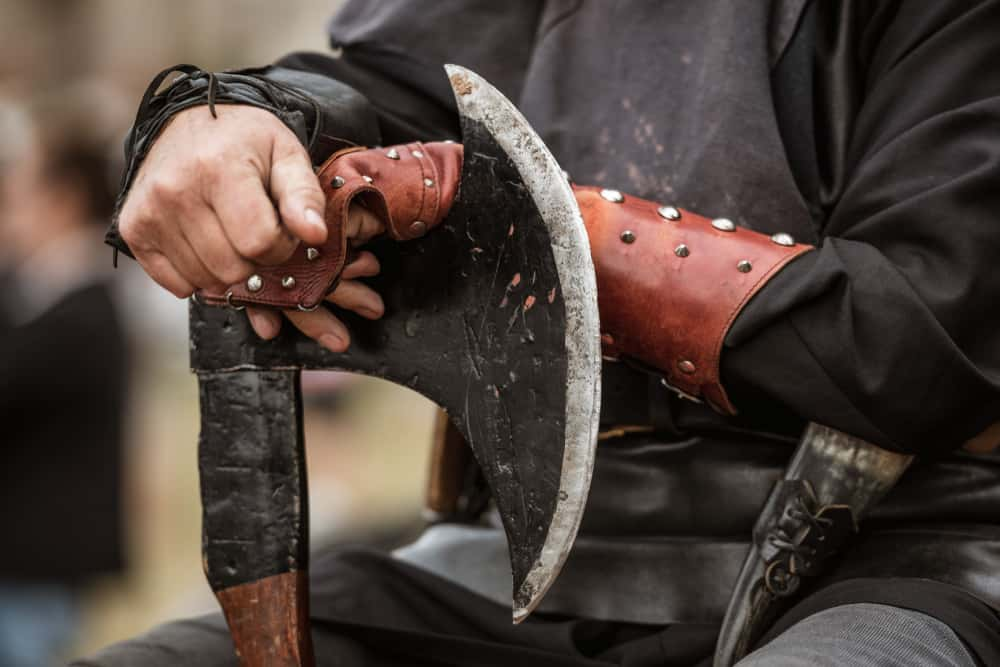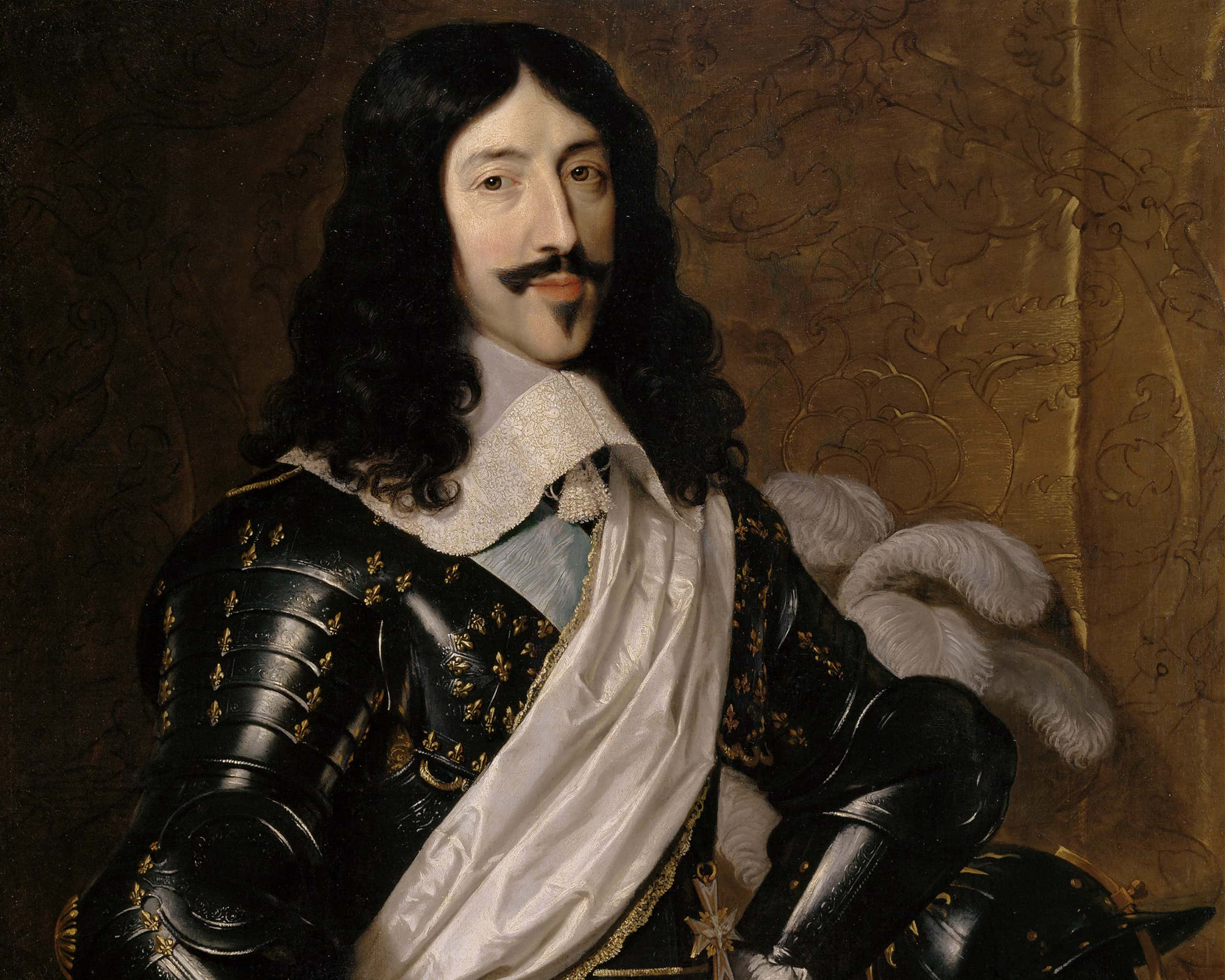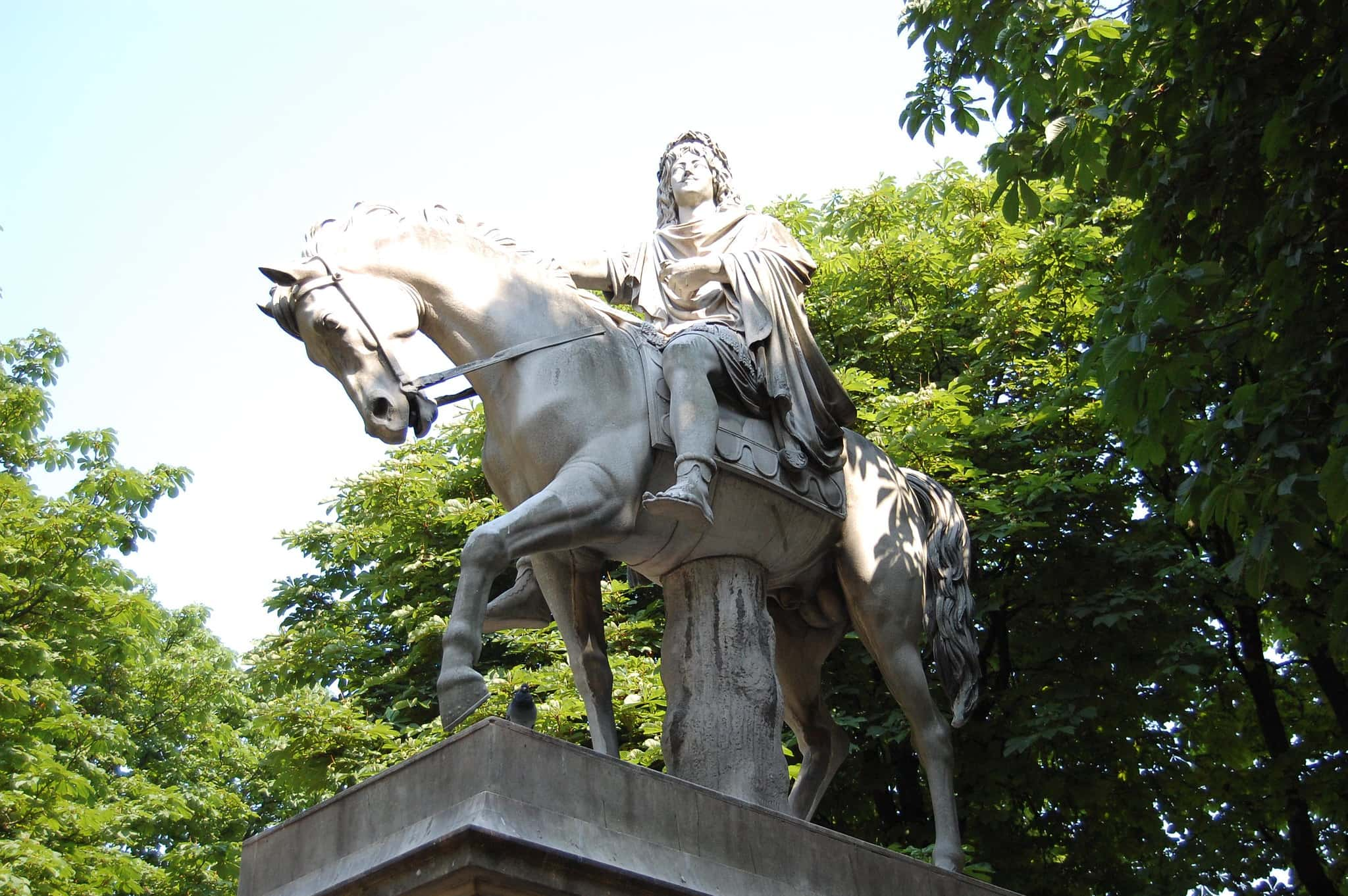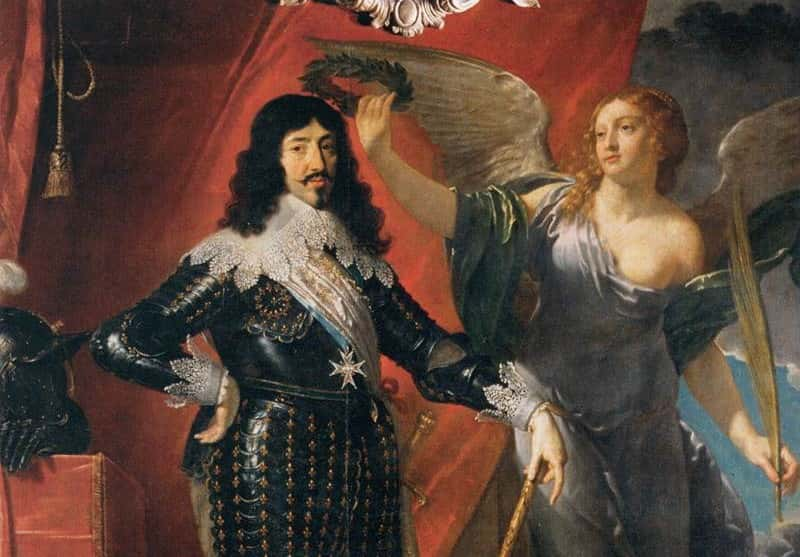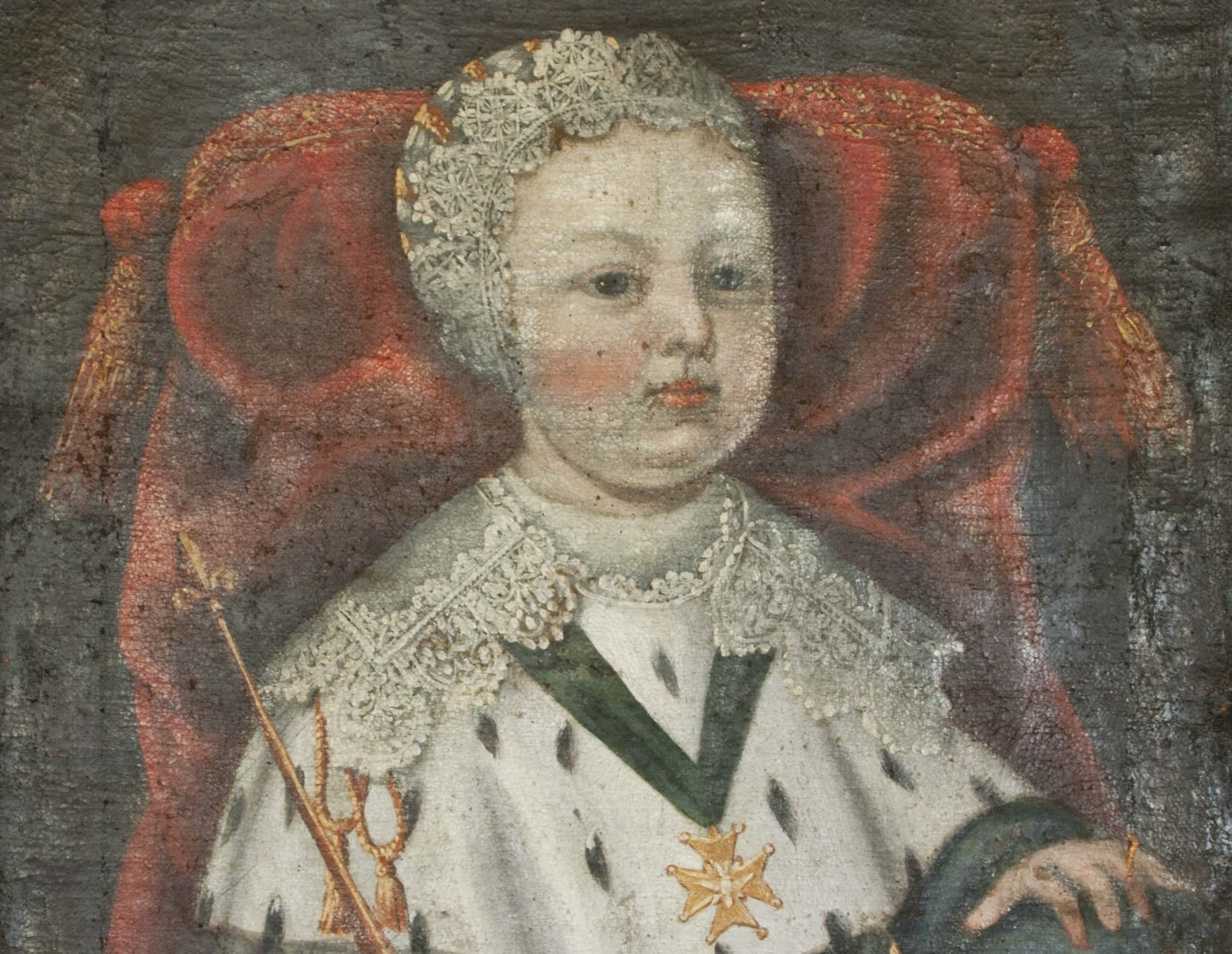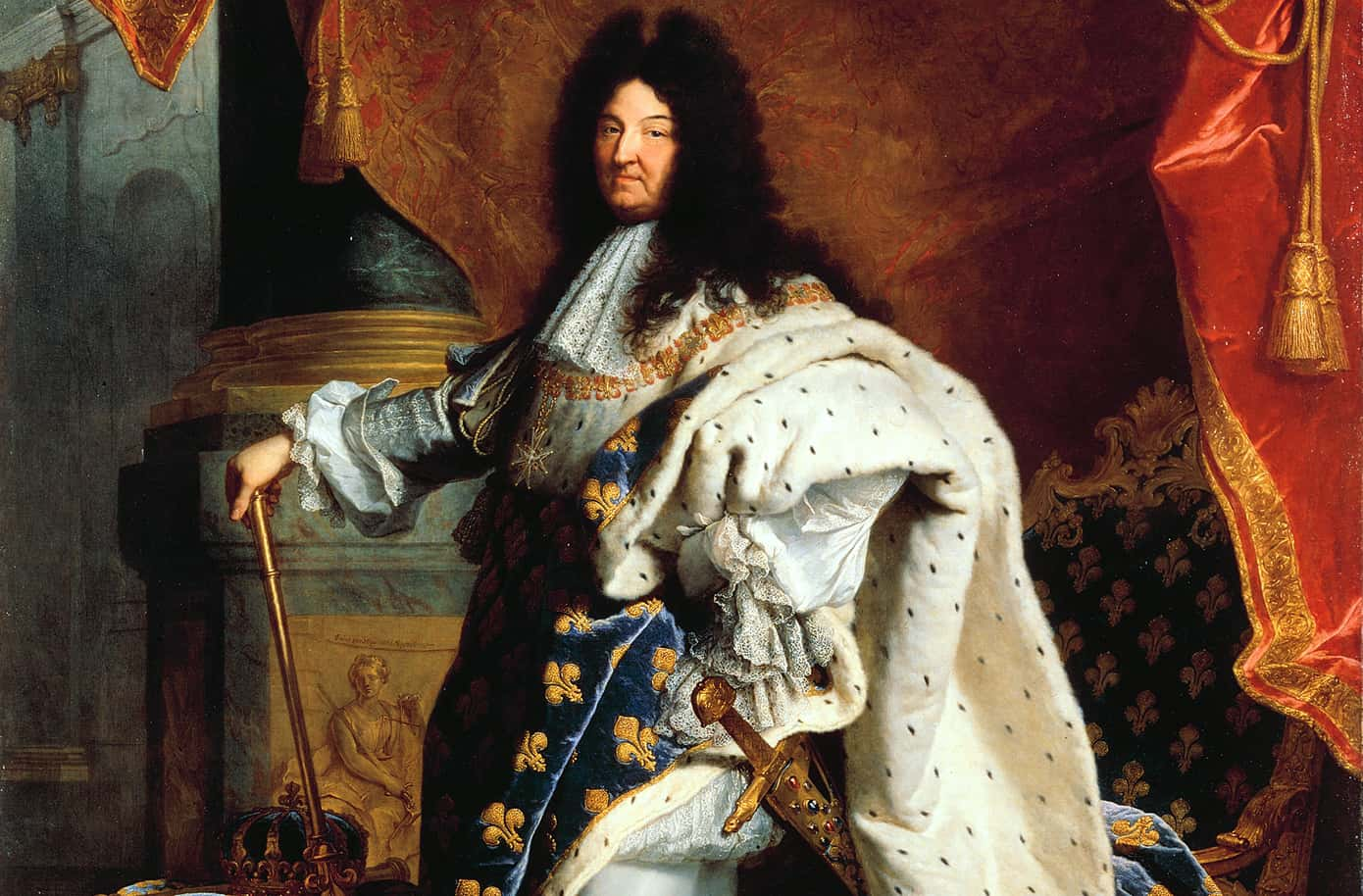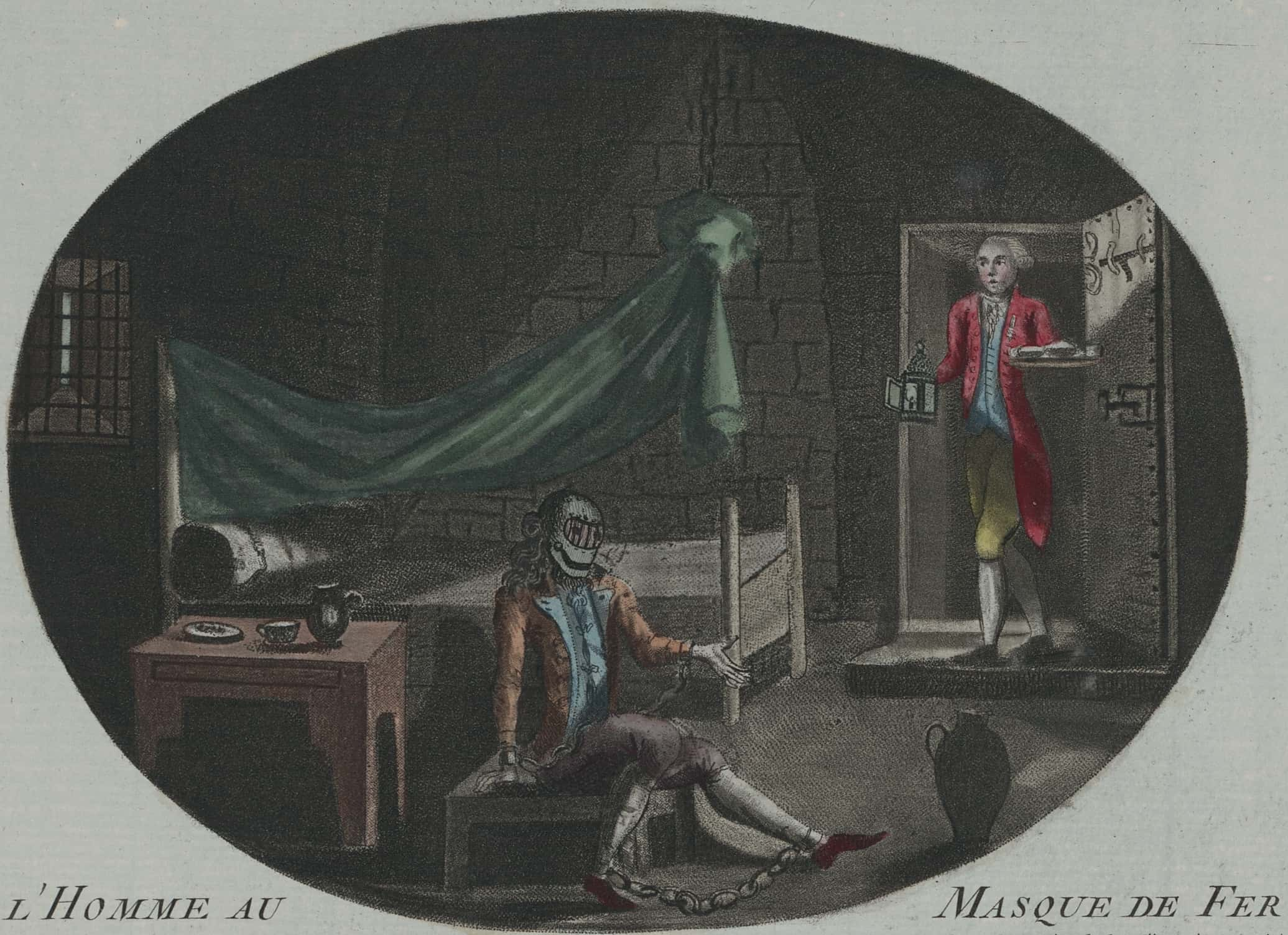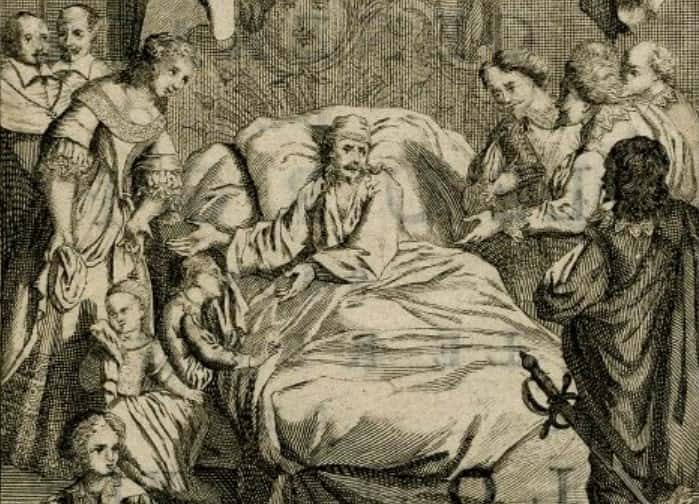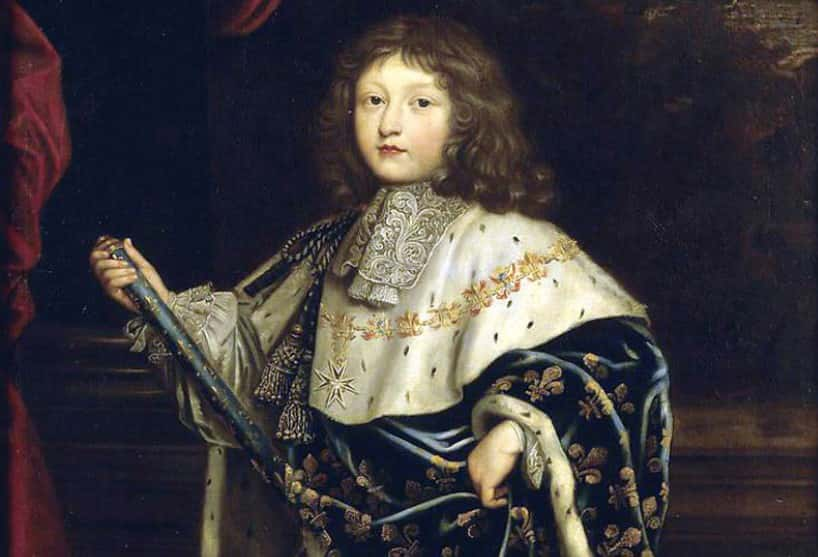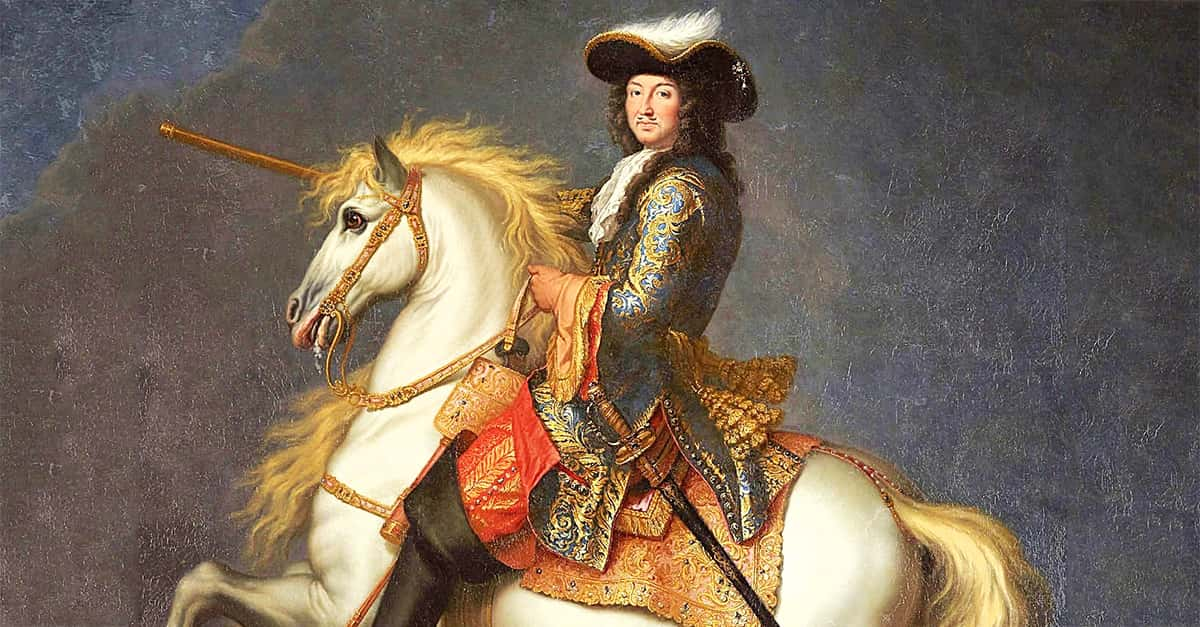Louis XIII Had A Reign Of Terror—Until His Brutal Downfall
King Louis XIII lived in an era of conflict and political intrigue. His life story reads like a chapter from Game of Thrones, filled with treachery and manipulation at times even from members of his own family. Ascending to the throne at the tender age of eight, most of his subjects did not foresee him becoming a ruthless monarch who dominated France—nor a fashion icon! Read on to see how he proved them wrong...
1. He Was Born Into A World Of Political Intrigue
Louis’ father was King Henry IV of France, the first king to come from the House of Bourbon. He was later known as “Henry the Great” for his popularity among his subjects before his chilling end. Louis’ mother was the scheming Marie de' Medici, the daughter of the Duke of Tuscany. Between his upstart father to his manipulative mother, Louis never had a chance to live a simple life.
From the moment he was born, Louis was doomed to a life of scandal and conflict.
2. He Was A Musical Prodigy
Louis’ mother Marie was an avid lute player, and she passed on the love of that instrument to her son. Louis started playing lute at the age of three. He was also keenly interested in dance. In his adult life, when Louis XIII wasn’t busy expanding the French Empire abroad or quelling insurrections at home, he continued to pursue his love of music. In 1635 he wrote his own ballet, and even performed in it!
Maybe he should have stuck to music, because his other hobbies were a lot less wholesome.
3. He Was An Awkward Child
Louis was a victim of taunting as a child as a result of physical defects. As a young boy, people often remarked on his debilitating stutter. People also made fun of him for his double rows of teeth. This had devastating effects on Louis’ confidence, and his parents became concerned that he would never become kinglike. They resolved to take matters into their own hands—but their methods were chilling.
4. His Parents Beat Him
Louis's childhood was a nightmare. Henry did not approve of his son’s awkwardness, and how different the boy was from him. He used corporal punishment in an attempt to toughen the boy up. Not that his mother was any better: Queen Marie would allegedly whip Louis with a switch every morning as a child. This toxic style of parenting did not improve Louis’ stutter, but only served to make him miserable.
Sadly for young Louis, even more pain lay ahead.
5. He Suffered Tragedy Early In Life
King Henry was assassinated when Louis was only eight. A Catholic fanatic ran the king through with a knife in the streets of Paris. He was 56 years old. The thing is, it actually gets more disturbing than all that. There were rumors that Louis’s scheming mother Marie may have been behind this plot. Ok, this is beginning to sound a lot like Game of Thrones…
6. He Was Too Young To Be King
Being only eight years old, Louis was too young to rule France on his own. His mother Marie became Queen Regent, taking care of the kingdom while Louis had time to reach maturity. Of course, most growing boys don’t want to be under their mother’s wing for too long, and as we’ll see, Louis would soon chafe against his mother’s control in a big way.
7. His Mother Came From A Sketchy Family
Whoever made the call to appoint Louis’ mother the Queen Regent of France had clearly not studied Marie’s family history. Marie, you may recall, came from the Italian Medici family. The Medicis were among the most notorious Italian families, and their ranks included four popes and even more monarchs. They sponsored intellectuals such as Niccolo Machiavelli...you know, the guy who literally coined the term “Machiavellian.”
Louis soon found out that the term “Machiavellian” fit his mother to a T.
8. His Mother Ruled With An Iron Fist
While Louis had to wait around and watch his mother rule, his country fell to ruin. Marie de Medici had made powerful enemies all throughout France, and rebels kept trying to take the boy's rightful throne from him. But Marie wasn't a tiger mom for nothing: She ultimately prevailed against the rebels, keeping the throne secure. But, uh, that didn't mean she was a good mother.

History's most fascinating stories and darkest secrets, delivered to your inbox daily.
9. His Mother Disrespected Him
Even though Louis was technically the king, Marie believed that the true power lay with her alone. When King Louis was 15, she slapped him in the face in front of the entire court! She was certainly one domineering mother. However, she would come to pay for her actions later. Until then, she had bigger plans in mind for her son...
10. His Future Wife Was A Spanish Princess
Louis’ second cousin was Anne of Austria, daughter of the King of Spain. She had this rather confusing name because the Spanish royal family in those days was originally from Austria. Anne had ash blonde hair, a pink face, and was very beautiful. Her favorite hobby was horse riding—basically, she was your average teenage horse girl.
Blood relations notwithstanding, Louis’ mother Marie decided when he was 11 years old that the two would make a perfect match.
11. He Married Young
In 1615 young King Louis and Princess Anne married. Though the two of them were second cousins, back in those days, this practice was common, particularly in royal families. While Louis’ father Henry had opposed Spain, his mother Marie felt that an alliance would be in France’s best interests. Even though the newlyweds were just teenagers, the pressure was on for them to consummate their marriage. This. Did. Not. Go. Well.
12. He Avoided His Wife
Louis was allegedly nervous about physical intimacy and did not want to consummate the marriage in spite of enormous political pressure. Yet, if he didn't “do the deed” his marriage ran the risk of annulment. This would potentially jeopardize the alliance with Anne’s parents. His mother eventually forced him to do it (ew!), but the experience was apparently so traumatic that it gave him a lifelong fear of physical intimacy with women.
With men, however, it may have been a different story.
13. He Never Took Any Mistresses
Anne and Louis had an unhappy marriage (can you believe it!?). The king treated her well, but he had to be dragged kicking and screaming to spend the night with her. Not exactly ideal husband material. However, there is no record that Louis kept any mistresses. This was so unusual that his subjects dubbed him “Louis the Chaste.”
It led to rumors that Louis was in fact not chaste at all, but secretly preferred men in the bedroom. As we'll see, there's some scandalous evidence for that theory.
14. He Didn’t Have His First Child Until He Was 37
Though Louis married his wife in 1615, the couple did not produce a child until 1638. Many attribute the fact that Louis took so long to produce an heir as proof of his alleged homosexuality. Either way, it wasn’t a great look for the very macho world of Medieval European royalty. Though we'll likely never know for sure what Louis got up to away from prying eyes, we do know he had some particularly important men in his life...
15. While His Mother Ruled, He Met His Best Friend
While growing up during his mother’s reign, Louis’s favorite courtier was Charles d’Albert, who taught him the art of falconry. Charles was the Chief Falconer of France, an actual royal position that honestly sounds awesome. Charles and Louis also bonded over hunting together. He was much older than Louis, but the two quickly became close. Like...really close.
16. He May Have Been In Love With His Best Friend
Louis XIII and d'Albert first met when Louis was just a boy. Under d'Albert's tutelage, Louis developed and expanded his interests and tastes. When Louis became king, d'Albert became his most trusted advisor, and they remained close as Louis took the reigns for himself. People whispered that the friendship eventually grew to be more than platonic; and that Louis and Charles were in fact, secret lovers.
Of course, Louis’ loveless marriage only added fuel to these rumors.
17. He Was A Avid Outdoorsman
In addition to his interest in music, Louis XIII was a fan of a wide array of outdoor activities. Thanks to Charles d’Albert, his favorite activity was apparently falconry. However he was also known as an enthusiastic hunter as a teenager, and apparently once killed six wolves in a single day! It was also alleged that he would ride horses until they literally perished from exhaustion.
So yes, we wouldn't exactly say that Louis was turning into a good person...and he was only going to get worse.
18. His Mother Would Not Give Up Power
Surprising almost no one, Louis’ controlling mother Marie enjoyed her power over France a little too much. Case in point: She was meant to step aside for Louis when he turned 13. However, she held onto power until he was 16. Louis resented his mother's overwhelming ambition, but there wasn't a whole lot he could do about it for a while. Instead, he fumed...and plotted his revenge.
19. He Overthrew His Own Mother
Louis XIII finally became the ruler of France when he turned 16. He had grown tired of doing everything his mother said—after all, he was the king! In response, Louis rebelled in a very teenage way: He plotted a coup de d’etat of his own mother. Oh, and the best part? He used his BFF Charles d’Albert to do it, who he quickly promoted to the Duke of Luynes. It got ugly fast.
20. His Revolt Turned Violent
Once Louis decided he had to oust his mother, it was no more good little boy king. In fact, when he and Charles started the revolt against the Queen Mother, they slew her chief advisor in the process. Goodness, your majesty. Though he was only a teenager, he had survived and triumphed over the first major challenge to his leadership. But he still had a decision to make...
21. He Sent His Mother Into Exile
Now Louis had to decide what to do with his disgraced mother. Instead of executing her, he sent her into exile in Blois. Louis confined her to a chateau instead of a jail, and he probably hoped that she would treat it as an early “retirement.” It turned out to be a bad move on his part—this was not the end of their tortured relationship…
22. His Mother Escaped Captivity
King Louis ordered his mother to stay put in a chateau in Blois. However, she escaped via a rope from her bedroom window, in what surely must have looked like a scene from a movie. The Queen Mother then fled to Angers. This was bound to cause a big headache for Louis in the future...but for a little while, she was content to watch from the sidelines.
Maybe she was curious to see how her son would do as king—and Louis certainly had big plans.
23. He Was Seen as Mentally Unstable
Though Louis XIII eventually demonstrated that he was formidable on the battlefield, the king suffered from mental instability as well as ill health. He was known to sneak away to go hunting instead of performing his duties as king. He was also seen as melancholic and—surprise, surprise—highly mistrustful of others.
As a result, d'Albert, the new Duke of Luynes, took over a great deal of the actual governing of the country. This was another move on Louis’ part that turned out to be ill-advised.
24. He Antagonized Some Subjects
During his reign, Louis never forgot about his “friend” (and possible lover) the Duke of Luynes. In fact, the king made his hunky companion his chief advisor, so they never had to be apart if they didn’t want to. Of course, this wasn’t exactly a good thing: Luynes came up with a number of policies that ticked the French nobility right off, especially those close to Louis’s mother Marie. Hmm, what could go wrong?
25. He Fought Against His Wife’s Parents
As if Louis didn't have enough drama coming from his mother, he also had a whole other family feud brewing with his in-laws. The King of Spain, AKA his wife Anne of Austria's father, was trying to start a war with one of Louis's friends, the Duke of Savoy. Instead of doing his father-in-law a solid, Louis sided with his buddy and fought the Spanish forces. Awkward.
Oh but see, Louis still wasn't finished.
26. He Arranged His Sister’s Wedding
After helping out the Duke of Savoy, Louis still wanted to show his BFF he always had his back. So, to solidify the alliance, Louis agreed to marry his sister Christine to one of the Duke’s sons. Win-win, right? Wrong. This made Louis’s fugitive mother Marie absolutely furious, and she decided she was done with her time out. Before long, she got payback.
27. His Mother Encouraged Rebellion
Luckily for Marie de Medici, plenty of other nobles in France were super angry about Louis's marriage plot with Savoy. Pretty soon, the stubborn, indefatigable woman was able to foment another open rebellion against her son. In 1620, she and her friends raised an army and attempted to overthrow her baby boy. It didn’t work: Louis defeated them that summer. Louis: 2. Mom: 0.
Still, Louis' reaction to this rebellion was surprising.
28. He Pardoned His Mother
Believe it or not, Louis decided to show mercy to his mother again in spite of her open defiance of his kingship. In 1621, he formally announced that he had reconciled with her. Family dinners must have been super awkward after that! Sadly this was still not the end of their tumultuous relationship. Do you think Marie de Medici learned her lesson, though? Heck no, the woman was a Medici after all.
29. He Lost His Best Friend
One day, Louis suffered a horrific tragedy. He had sent his friend-lover, Charles d'Albert out on campaign, only for the often fatal scarlet fever to ravage through the French armies. In a cruel twist of fate, d'Albert himself caught the illness and perished from it in a matter of days. In a world where Louis’s enemies surrounded him, he had just lost one of his only friends. Who would he turn to now?
30. He Kept His Friends Close And His Enemies Closer
The passing of his good friend/maybe lover d'Albert affected Louis greatly...and uh, made him make some questionable decisions. He determined afterward that he would rule by council, and added his mother Marie to the royal council in 1622 along with the rising politician Cardinal Richelieu. Presumably, he hoped that keeping his mother close to power would prevent her from being tempted to oppose him again. Yeah, good luck with that, buddy.
31. His Brother Betrayed Him
Louis’s mother wasn't the only treacherous member of his family. His younger brother Gaston started two rebellions against him. Double-crossing the king was apparently a big tradition in this family. This time, however, Louis’s mother sided with her eldest son. Gaston lost a major battle in Languedoc and subsequently fled the country.
As punishment for committing high treason, Louis decided he had no choice but to…welcome Gaston back with open arms. Ok Louis, you’ve got to be kidding me here...
32. He Popularized Wigs For Men
King Louis XIII was one of the first prominent European men to favor wearing large, elaborate wigs. He began to wear one with long, luscious black locks in 1624 when he had started to go bald. By the end of his reign, wigs were a symbol of status throughout Europe. Wigs were so popular that the very first wig-making guild was founded in France in 1665.
Louis was beginning to finally develop his own style. However, that style wasn’t just aesthetic—it was also authoritarian.
33. He Was One Of The First Absolute Monarchs In Europe
Working on Cardinal Richelieu's advice, Louis decided to dispense with government by council. He instead took full control of France’s governance himself, in a move that would have made Emperor Palpatine proud. However, figures such as his mother and Richelieu would still play an important role behind the scene...and not in a good way.
34. He Outlawed Dueling
Louis decided to outlaw dueling by royal decree. He also banned the use of private armies, and dismantled the fortifications in several major French towns. Aw, that’s nice right? Pacifism! Well, I wish. The real impetus behind this move was to give the French Crown complete control over the use of force. Our little Louis was turning into quite the tyrant. And he didn’t stop there.
35. He Beheaded A Record Number of People
Tired of facing threats from nobles, and, you know, close members of his own family, Louis XIII decided that the best policy of deterrence was capital punishment. He did not give any clemency to traitors and lawbreakers based on social status—or even on family ties. He executed his own cousin in 1632. No more Mr. Nice King!
36. He Expanded The French Empire Abroad
As Louis began to settle into the role of king, he became determined to expand his kingdom. In 1619, King Louis sent a fleet to fight the Dutch Empire for control of Indonesia. In 1627 he ordered the colonization of Acadia, an area in what is now the Maritime provinces of Canada. Louis had almost completed his shift from timid boy king into tyrant/emperor.
But he would have to pass one more test before his leadership was truly solidified…
37. His Mother Was Suspicious Of Richelieu
Marie de Medici was suspicious (and most likely jealous) of Richelieu’s influence on her son. After all, she saw the king’s chief advisor as the only obstacle to dominating him as she had before. This was ironic, as Richelieu had actually started his career as one of Marie’s favorites. Louis’ wife Anne apparently also hated Richelieu, for similar reasons.
The women in Louis's life sensed that perhaps in spite of the wars and beheadings, he was still very much a shy and timid boy who they could take advantage of. How do you think that worked out?
38. His Family Tried To Oust His Chief Advisor
In 1630, the Queen Mother teamed with Louis’ wife Anne and his younger brother Gaston. They all agreed that Richelieu had to go, so Mary went straight up to her son and told him that he had to pick one: His mother, or the Cardinal. The king’s response to this ultimatum—which would decide his political future—was embarrassing.
39. He Hesitated To Take Action
Look, Louis was a flawed person, and he didn’t handle his mother’s needling well. Instead of dealing with the issue head on, Louis...left the meeting and snuck away to his hunting lodge. So much for showing strong leadership. Still, although the outcome hung in the balance, Marie de Medici probably thought her chances were good. She was sorely mistaken.
40. He Duped His Court
Cardinal Richelieu prepared to pack his bags, thinking that his political career was over. Marie uncorked the champagne, and her supporters in the palace reveled in their victory. Seriously, they started a party to celebrate the ousting of Richelieu, but they spoke too soon. Eventually, Louis pulled himself together and established that he was actually not going to fire Richelieu.
Louis had made up his mind: no more mama’s boy. He was firmly on Team Richelieu. The party was over.
41. His Mother Fled The Country
After the incident between Marie and Cardinal Richelieu, the king’s mother fled to Brussels. Louis begged her to reconcile with Richelieu. In spite of all the drama that had transpired, she was still his mother and he had a soft spot for her. However, taking the high road was not Marie’s forte.
42. His Mother Continued To Plot Against Him
Marie continued to try and stir up popular resentment against Louis and Richelieu from abroad. She attempted to get her extended family in on the plot, including her daughters' husbands, forming a "league of sons-in-law" against Louis. However her attempt to start another rebellion never really took off, and she never set foot in France for the rest of her life. Louis was finally free to deal with more pressing matters...
43. He Decided To Go To Enter A Pan-European Conflict
Following Richelieu’s advice, Louis decided to enter the Thirty Years’ War. This conflict dominated Europe in the first half of the 1600s. It was a fight between Catholic monarchies such as Spain and the Holy Roman Empire, pitted against Protestant kingdoms including Denmark, Sweden, and the Netherlands. King Louis was torn on which side to choose.
He grew up a Catholic and wanted to support the Holy Roman Empire, but in the end, he went against his gut. He ignored his earlier sympathies for the Catholics and entered on the Protestant side. But he had an ulterior motive, too...
44. He Clashed With Spain (Again)
King Louis XIII didn’t join the conflict just to uphold religious morality, God no. He also did it out of petty grudges. See, his old enemy the King of Spain was definitely on the Catholic side of the fight, and Louis wanted to stick it to him wherever he could. Reminder: This was his brother-in-law we're talking about, and his wife Anne’s home country. Ouch, Louis. Ice cold. But he would regret it soon enough.
45. He Almost Lost Paris
In 1636, the course of the Spanish conflict was not going well for France or King Louis XIII. Spanish forces advanced across the country and nearly reached Louis’s beloved Paris. Cardinal Richelieu advised Louis to abandon the city, but the king decided to stand firm. For once, Louis made the right choice, and, in the end, the French army prevailed.
But Louis now had a new problem on the home front: The pesky matter of producing an heir with a wife he didn’t love.
46. His Son Was Also Named Louis
Because 13 French kings named Louis were not enough, Louis XIII and Anne named their firstborn Louis as well. Louis XIV arrived in 1638 after 23 years of marriage between Louis and Anne. The couple had four stillbirths before they were successfully able to produce an heir. Louis XIV became king in 1654, and reigned for 72 years. This is the longest reign of any monarch in European history.
47. His Son Was A Miracle
When Louis’ son, the future Sun King, was born the royal court hailed it as a miracle. Young Louis XIV received the second name Dieudonné, meaning “God-given.” Louis XIII was skeptical that his son was in fact a miracle. Yet in a sense he was—Louis and Anne had managed to come together in spite of the miscarriages, Louis’s lack of desire, and Anne’s siding with his scheming mother. But was Louis Jr. the king’s only son?
48. He Might Have Had A Secret Son
Later, a French novelist claimed that Louis and Anne had fathered twins. He alleged that the younger one was imprisoned and forced to wear an iron mask to conceal his identity, spurring the legend of the Man in the Iron Mask. Other writers such as Voltaire claimed that the masked man was in fact Anne’s illegitimate son with another man.
Regardless of who the masked man may or may not have been, Louis and Anne produced one more son (Phillipe) before tragedy struck yet again...
49. Historians Believe He Was Killed By Tuberculosis
Louis became unwell in the winter of 1642. By February of 1643 he was almost completely bedridden and complained of pain in his stomach. This illness eventually claimed Louis XIII’s life. Most modern historians believe that he was probably suffering from intestinal tuberculosis. The royal doctors tried their hardest to save him, but their methods were highly suspect.
50. His Doctors Used Unpleasant Treatments
Modern medicine was still in its infancy in the 1600s. As a result, doctors treated Louis XIII with methods that would probably be seen as horrific today. They used a technique known as bloodletting, which involved drawing blood from the patient, sometimes using leeches. Ugh.
51. His Son’s Childhood Echoed His Own
Louis XIII succumbed to his illness on May 14, 1643. This marked exactly 33 years since the passing of his father Henry in 1610. Once again, a young boy was King of France. His son Louis XIV was only five years old and never got the chance to know his own father. This time Anne of Austria ruled as Regent. I’m already getting a sense of deja vu here...but alas, that’s another story.
Sources: 1, 2, 3, 4, 5, 6, 7, 8, 9, 10, 11, 12, 13, 14, 15, 16, 17, 18, 19

